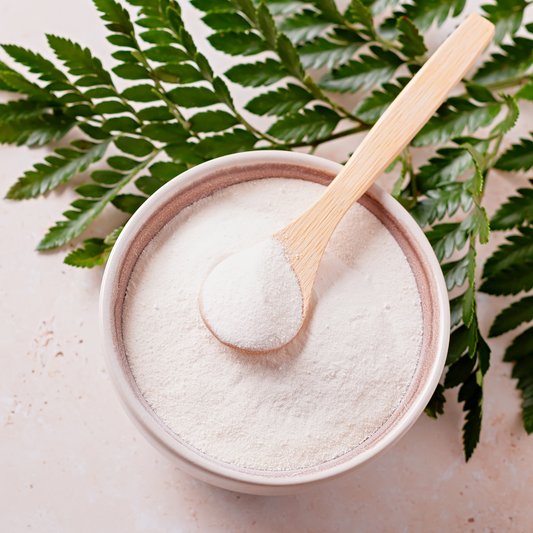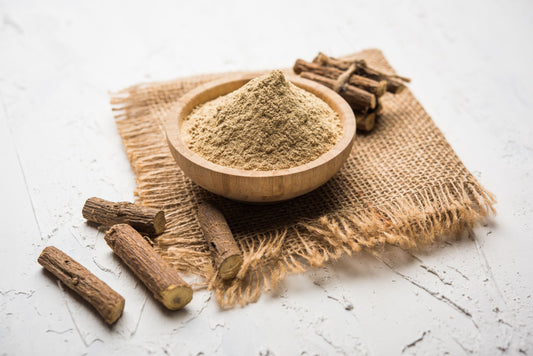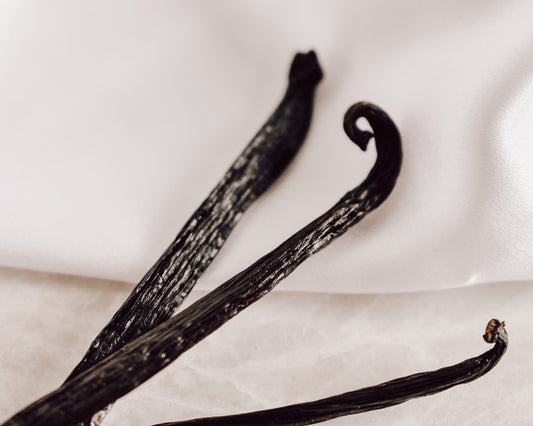Does marshmallow help heartburn? While you may be more familiar with marshmallows as a tasty treat, the root of the marshmallow plant has been used for centuries for its medicinal properties. In this article, we will delve into the surprising benefits of marshmallow root for heartburn relief. Soothing and gentle, marshmallow root acts as a natural remedy that can help ease the burning sensation and discomfort caused by acid reflux. Not only does it provide relief, but it also helps to protect and heal the delicate lining of the esophagus, reducing the chances of future heartburn episodes. Whether you suffer from occasional heartburn or chronic acid reflux, marshmallow root offers a natural and effective solution. So, let's explore the wonders of this underrated herb and unlock the secrets to a heartburn-free life.
Understanding heartburn and its causes
Heartburn, also known as acid indigestion, is a common condition characterized by a painful burning sensation in the chest or throat. It occurs when stomach acid flows back into the esophagus, causing irritation and inflammation. This can be triggered by various factors, including certain foods, overeating, smoking, or lying down after a meal. While occasional heartburn is normal, frequent or severe episodes can significantly impact your quality of life.
How does marshmallow root provide relief for heartburn?
Marshmallow root contains mucilage, a gel-like substance that forms a protective layer along the lining of the esophagus. This mucilage acts as a barrier, preventing stomach acid from causing further irritation and damage. Additionally, marshmallow root has anti-inflammatory properties that help reduce inflammation in the esophagus, providing relief from the burning sensation associated with heartburn.
Here are 5 proven ways that marshmallow root promotes heartburn relief:
- Stimulates cells for tissue regeneration in support of healing the gut lining.
- Soothes sore throats and reduces GERD coughing.
- Reduces inflammation in the esophagus and stomach.
- Promotes healing of gastric ulcers.
- Stimulates the production of saliva which can neutralize stomach acid.
Research-backed benefits of marshmallow for frequent heartburn
Multiple studies have highlighted the potential benefits of marshmallow root for heartburn relief. A study published in the Journal of Ethnopharmacology found that marshmallow root stimulates the cells that support tissue regeneration, hence it can help promote healing of the gut lining! GERD/frequent heartburn is often accompanied by coughing, luckily, researchers found that marshmallow root could soothe sore throats and reduce coughing.
The anti-inflammatory properties of marshmallow root have also been recognized in scientific literature. Researchers suggest the anti-inflammatory effects of marshmallow root were similar to or even better than diclofenac - a medicine that reduces inflammation and pain. Unlike diclofenac which may cause ulcers, marshmallow root demonstrated potential benefits in treating gastric ulcers with no visible adverse effect.
Research has also shown that the mucilage in marshmallow root can also stimulate the production of saliva, which has natural antacid properties. Saliva helps neutralize stomach acid and aids in digestion, further alleviating heartburn symptoms.
How to use marshmallow root for heartburn relief
There are several ways to incorporate marshmallow root into your routine for heartburn relief. You can make marshmallow root tea, but this method can be time consuming. Alternatively, you can find marshmallow root supplements in capsule form, but this method is not enjoyable and can be difficult to swallow. Note that the powdered root form of the plant may be more effective than a tea or tincture, as the herb needs direct contact with the membranes to coat the throat. Thus, the best and tastiest way to incorporate marshmallow root into your diet is with Heartburn Elixir. It consists of only natural ingredients, all backed by research for heartburn relief.
Other potential health benefits of marshmallow root
While marshmallow root is primarily known for its benefits in relieving heartburn, it also offers several other potential health benefits. The soothing and anti-inflammatory properties of marshmallow root make it useful for managing other digestive issues, such as gastritis, ulcers, and irritable bowel syndrome (IBS). It has strong antioxidant activity and can reduce toxic effects of metals in the body. Marshmallow root extract has also exhibited antibacterial effects on dental plaque. Thanks to its antibacterial activity, the soothing effect of marshmallow root may also help speed up wound healing.
Precautions and potential side effects of marshmallow root
Marshmallow root is unlikely to cause side effects when a person uses it properly. Most research has shown that people have a very low risk of adverse reactions. In very rare instances, people may be allergic to marshmallow root.
Tips for incorporating marshmallow root into your daily routine
To make the most of marshmallow root's heartburn-relieving properties, consider incorporating it into your daily routine with Heartburn Elixir. Enjoy 2 servings of Heartburn Elixir blended with almond milk before or after meals to help prevent heartburn episodes. If you prefer a hot drink, heating it up will produce a foamy delicious “chocolate” latte!
Conclusion: Harnessing the power of marshmallow root for natural heartburn relief
In conclusion, marshmallow root is a natural and effective remedy for heartburn relief. Its soothing and anti-inflammatory properties help alleviate the discomfort of heartburn and protect the delicate lining of the esophagus. With its long history of use and the support of scientific research, marshmallow root offers a safe and gentle solution for those suffering from occasional or chronic heartburn. Say goodbye to the discomfort of heartburn and embrace the wonders of marshmallow root with Heartburn Elixir. Experience the natural relief it provides and unlock the secrets to a heartburn-free life.
Thanks so much for visiting GERD Health, as a girl with GERD, I fully understand the struggle in adjusting our lifestyles to accommodate our health! You don’t have to be alone in this journey, join us in reclaiming our food freedom by entering your email to stay up to date on all things GERD Health! Let’s connect in the comments!
P.s. You might want to discover 6 Research Backed Benefits of Slippery Elm for GERD as well ;)
References:
Deters, A., Zippel, J., Hellenbrand, N., Pappai, D., Possemeyer, C., & Hensel, A. (2010). Aqueous extracts and polysaccharides from marshmallow roots (Althea officinalis L.): Cellular internalisation and stimulation of cell physiology of human epithelial cells in vitro. Journal of Ethnopharmacology, 127(1), 62–69. https://doi.org/10.1016/j.jep.2009.09.050
Fink, C., Schmidt, M., & Kraft, K. (2018). Marshmallow root extract for the treatment of irritative cough: Two surveys on users’ view on effectiveness and tolerability. Complementary Medicine Research, 25(5), 299–305. https://doi.org/10.1159/000489560
Elmastas, M., Ozturk, L., Gokce, I., Erenler, R., & Aboul‐Enein, H. Y. (2004). Determination of antioxidant activity of marshmallow flower (althaea officinalisL.). Analytical Letters, 37(9), 1859–1869. https://doi.org/10.1081/al-120039431
Hage-Sleiman, R., Mroueh, M., & Daher, C. F. (2011). Pharmacological evaluation of aqueous extract ofalthaea officinalisflower grown in Lebanon. Pharmaceutical Biology, 49(3), 327–333. https://doi.org/10.3109/13880209.2010.516754
Bonaterra, G. A., Bronischewski, K., Hunold, P., Schwarzbach, H., Heinrich, E.-U., Fink, C., Aziz-Kalbhenn, H., Müller, J., & Kinscherf, R. (2020). Anti-inflammatory and anti-oxidative effects of Phytohustil® and root extract of Althaea officinalis L. on macrophages in vitro. Frontiers in Pharmacology, 11. https://doi.org/10.3389/fphar.2020.00290
Haghgoo R, Mehran M, Afshari E, Zadeh HF, Ahmadvand M. Antibacterial Effects of Different Concentrations of Althaea officinalis Root Extract versus 0.2% Chlorhexidine and Penicillin on Streptococcus mutans and Lactobacillus (In vitro). J Int Soc Prev Community Dent. 2017 Jul-Aug;7(4):180-185. doi: 10.4103/jispcd.JISPCD_150_17. Epub 2017 Jul 31. PMID: 28852633; PMCID: PMC5558251. https://pubmed.ncbi.nlm.nih.gov/28852633/
Skrinjar, I., Vucicevic Boras, V., Bakale, I. et al. Comparison between three different saliva substitutes in patients with hyposalivation. Clin Oral Invest 19, 753–757 (2015). https://doi.org/10.1007/s00784-015-1405-8
Rezaei M, Dadgar Z, Noori-Zadeh A, Mesbah-Namin SA, Pakzad I, Davodian E. Evaluation of the antibacterial activity of the Althaea officinalis L. leaf extract and its wound healing potency in the rat model of excision wound creation. Avicenna J Phytomed. 2015 Mar-Apr;5(2):105-12. PMID: 25949951; PMCID: PMC4418059. https://www.ncbi.nlm.nih.gov/pmc/articles/PMC4418059/










